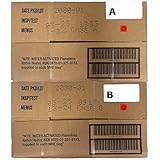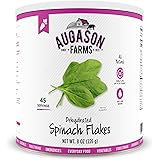When I first started my journey into prepping, one of the biggest realizations I had was that I couldn’t do it all alone. That’s when I decided to establish a local prepper network. It’s a fantastic way to tap into collective skills, resources, and information. In this article, I’ll share five key areas I focused on when building my own network, which I’m confident can help you do the same.
Identifying Local Preppers
Networking Online
The digital world is full of people who share your interests. I started by joining local forums and social media groups dedicated to prepping. Sites like Facebook and Reddit have specific groups where preppers chat and exchange ideas. By engaging with these communities, I met some incredible people who were equally interested in establishing a network.
It’s important to participate, though. I didn’t want to just lurk around; I wanted to contribute. I shared my own research, experiences, and preparations. Eventually, this allowed me to connect with local individuals who were also looking for a prepper network. The more active you are, the easier it becomes to find others in your area.
Don’t underestimate the power of those “algorithm-driven” suggestions. Once I started engaging, Facebook would start recommending other groups, which opened up even more opportunities to connect with local preppers. You’d be surprised at how many like-minded folks are out there!
Community Events and Meet-ups
After making a few connections online, I looked for local events where I could meet others in person. Workshops, lectures, and local expos focusing on survival skills or preparedness were gold mines. These gatherings not only provide valuable knowledge but also bring together people with the same interests.
At these meet-ups, I didn’t just go in with my own agenda; I asked questions and listened carefully. You can learn so much from others’ experiences and advice. I even brought materials to share about my prepper endeavors, which paved the way for some fantastic conversations.
Don’t be shy! Approach strangers and introduce yourself. Many people are excited to meet fellow preppers and share their experiences. This is how I built a solid foundation for my local network; those initial awkward conversations led to lasting friendships.
Local Prepper Organizations
Sometimes it pays off to find formal organizations that have already established prepper networks. I did some research and discovered a local group dedicated to emergency preparedness and survival skills. Joining allowed me to contribute to a larger mission, while also meeting people who were equally passionate about prepping.
== > What if ... Get a FREE Subscription to PREPARE
Being part of a structured organization also gave me access to resources I wouldn’t have on my own. These organizations often host regular meetings, training sessions, and workshops that provide endless opportunities to learn and network.
In addition, collaborating with recognized groups lends a bit of credibility to my own initiatives. It’s easier to gather like-minded individuals when I can reference known organizations; people are generally more willing to engage when there’s an established framework.
Building Trust Within the Network
Transparency and Honesty
Trust is crucial in any group setting, and I found that being open and honest with my new prepper friends was the best way to build it. When I first started meeting others, I shared my goals and what I hoped to achieve with our network. This seemed to foster a sense of camaraderie.
I also made a point to listen to their experiences and concerns. Everyone in the group has different backgrounds and skills, and understanding those differences is key. Open dialogue encouraged others to be transparent about their skills and knowledge, which helped us collaboratively plan future meetings or training sessions.
As we continued to build our network, I found that fostering trust helped ease some of the anxiety people have about sharing their personal preparedness strategies. It’s a collaborative effort; let’s learn from one another, right?
Sharing Resources and Skills
One of the best parts of my prepper network has been sharing resources. Early on, my group created a resource-sharing platform where we could list tools, books, and other prepper materials we had available. This not only saves money but also encourages a sense of community.
I also organized skill-sharing sessions where each member could teach something they excel at. For instance, I had a friend who was a master gardener share tips about growing food sustainably. I offered a session on basic first aid, using scenarios that might come up in emergency situations. This mutual exchange strengthened our bond and improved everyone’s preparedness skills.
It’s worth noting that sharing doesn’t just pertain to physical items or skills. Sharing information about local threats or resources, like where to find clean water sources or food supplies, is invaluable too. Let’s face it, knowledge is power in prepping!
Creating a Supportive Environment
Let’s be real: prepping can be a bit overwhelming at times. There were moments when I felt frustrated with my progress. Building a supportive network has been a game-changer in those moments. We aim to establish a no-judgment space where each person’s efforts and knowledge are valued.
Get Preparedness and Self-Reliance Tips. Subscribe Now!
I found that acknowledging and celebrating even small achievements helps motivate everyone. Whether it’s building a bug-out bag or learning a new skill, we cheer each other on! This positive reinforcement has not only helped keep spirits high but has also encouraged us to tackle new challenges together.
In a world where many find it hard to connect, creating a supportive environment does wonders for individual and collective morale. If we feel supported, we’ll naturally be more committed to the network and its goals.
Establishing Regular Meetings
Finding a Consistent Schedule
Once I had some solid connections, I suggested we establish a regular meeting schedule. This was imperative for keeping everyone motivated and engaged. After discussing options, we landed on a monthly meet-up that accommodated most of our schedules. The key to consistency is making it a priority.
We decided on a potluck-style gathering where each of us would bring a dish. This made our meetings more casual and welcoming. People look forward to good food and great conversations, which keeps the turnout high. It became something we all eagerly anticipated each month!
Laying out a schedule also allows everyone to propose topics and activities in advance. This way, everyone feels involved in planning, which in turn strengthens commitment to the network. Monthly meetings quickly transitioned from transactional gatherings to events filled with fun, laughter, and learning.
Focusing on Training and Skills Development
During our regular meetings, we agreed that skills development should be a priority. We created a rotating agenda where each meeting would focus on a different prepper skill. This ranged from self-defense and gardening to food storage techniques. Essentially, it was about mixing fun with learning!
Having guest speakers is also a fantastic idea to consider. A local expert can bring a whole new perspective or technique, making the sessions even more valuable. One of our best meetings was led by a local herbalist who taught us about medicinal plants. I learned so much, and it was an eye-opener for many in the group.
Moreover, participating in hands-on training activities encourages teamwork. It reassures us that we can rely on each other in times of need. Skills are great assets, but bonds created through shared learning experiences last a lifetime!
Documenting Progress and Sharing Successes
Finally, we made it a habit to document our experiences. Whether through a group chat or dedicated social media page, celebrating our accomplishments helps keep everyone inspired. When one person grows in their skills or completes a project, we all share in that victory.
Consider creating a newsletter or blog to highlight what we’ve learned and achieved every month. This not only reinforces our collective knowledge but also acts as a motivational tool. Looking back at our progress helps remind us why we started this journey in the first place.
It also encourages those who may be struggling. When they see others succeed, it reignites their passion for prepping. And isn’t that what community is all about?
Frequently Asked Questions
1. How do I find other local preppers?
Start by searching online forums and social media groups focused on prepping. Attend local events or workshops that align with these interests, and consider joining any existing prepper organizations in your area.
2. What should I do if I feel nervous about joining a prepper network?
It’s completely normal to feel nervous! Approach this with an open mind, and remember that everyone was a beginner at some point. Start by attending a meeting without the pressure to speak; just listen and observe the environment.
3. How can I contribute to my prepper network?
You can contribute by sharing your skills or resources, volunteering to organize meetings, or leading a training session on something you excel at – every small effort helps strengthen the network!
4. What should I bring to my first meeting?
Bring an open mind and a willingness to learn! If it’s a potluck, share a dish you enjoy. Also, consider bringing any resources or information you can share with the group.
5. How do we maintain the enthusiasm in our local prepper network?
Highlight successes regularly, keep the meetings fresh by varying topics, and foster a supportive environment. Celebrate each member’s achievements; it helps maintain enthusiasm and a sense of community!
Get Preparedness and Self-Reliance Tips. Subscribe Now!
Related Content
A and B bundle cases 2025, 2026 inspection. Meals Ready to Eat Genuine Military US surplus emergency food bulk supply full box with heater
$80.95 (as of February 25, 2026 10:24 GMT -05:00 - More infoProduct prices and availability are accurate as of the date/time indicated and are subject to change. Any price and availability information displayed on [relevant Amazon Site(s), as applicable] at the time of purchase will apply to the purchase of this product.)Ready Hour, Fruit & Veggie Mix, Non-Perishable Freeze-Dried Food, 30-Year Shelf Life, Portable Emergency and Adventure Food Supply, Durable Flood Safe Container, 56 Servings
$54.95 (as of February 25, 2026 10:24 GMT -05:00 - More infoProduct prices and availability are accurate as of the date/time indicated and are subject to change. Any price and availability information displayed on [relevant Amazon Site(s), as applicable] at the time of purchase will apply to the purchase of this product.)Dehydrated Spinach Flakes Emergency Food Supply, 45 Servings, 25 Year Shelf Life, 15 Calories per Serving - Dehydrated Meals, Survival Food Camping Essentials Can
$14.28 (as of February 25, 2026 10:24 GMT -05:00 - More infoProduct prices and availability are accurate as of the date/time indicated and are subject to change. Any price and availability information displayed on [relevant Amazon Site(s), as applicable] at the time of purchase will apply to the purchase of this product.)Tomato Powder Can Emergency Food Supply, 329 Servings, 25 Year Shelf Life, Made with Real Tomatoes - Dry Tomato Powder Blend, Ingredient for Cooking and Food Preparation
$33.44 (as of February 25, 2026 10:24 GMT -05:00 - More infoProduct prices and availability are accurate as of the date/time indicated and are subject to change. Any price and availability information displayed on [relevant Amazon Site(s), as applicable] at the time of purchase will apply to the purchase of this product.)Stealth Angel Survival - 72 Hour Family Emergency Kit - 1-5 Person Survival Bag for Earthquakes, Hurricanes, and Other Natural Disasters
Now retrieving the price.
(as of February 25, 2026 10:24 GMT -05:00 - More infoProduct prices and availability are accurate as of the date/time indicated and are subject to change. Any price and availability information displayed on [relevant Amazon Site(s), as applicable] at the time of purchase will apply to the purchase of this product.)





